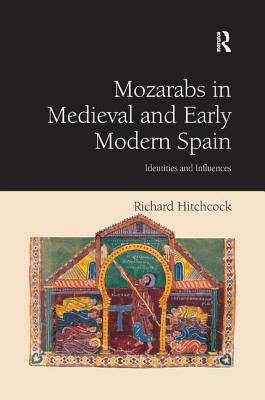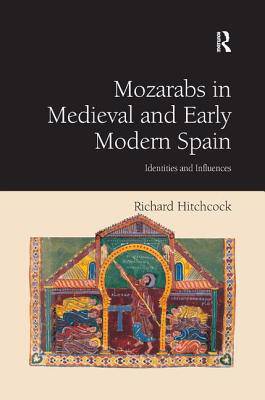
Door een staking bij bpost kan je online bestelling op dit moment iets langer onderweg zijn dan voorzien. Dringend iets nodig? Onze winkels ontvangen jou met open armen!
- Afhalen na 1 uur in een winkel met voorraad
- Gratis thuislevering in België vanaf € 30
- Ruim aanbod met 7 miljoen producten
Door een staking bij bpost kan je online bestelling op dit moment iets langer onderweg zijn dan voorzien. Dringend iets nodig? Onze winkels ontvangen jou met open armen!
- Afhalen na 1 uur in een winkel met voorraad
- Gratis thuislevering in België vanaf € 30
- Ruim aanbod met 7 miljoen producten
Zoeken
Mozarabs in Medieval and Early Modern Spain
Identities and Influences
Richard Hitchcock
Hardcover | Engels
€ 290,45
+ 580 punten
Omschrijving
The setting of this volume is the Iberian Peninsula during the Middle Ages, where Christianity and Islam co-existed side by side as the official religions of Muslim al-Andalus on the one hand, and the Christian kingdoms in the north of the peninsula on the other. Its purpose is to examine the meaning of the word 'Mozarab' and the history and nature of the people called by that name; it represents a synthesis of the author's many years of research and publication in this field. Richard Hitchcock first sets out to explain what being a non-Muslim meant in al-Andalus, both in the higher echelons of society and at a humbler level. The terms used by Arab chroniclers, when examined carefully, suggest a lesser preoccupation with purely religious values than hitherto appreciated. Mozarabism in LeÃ3n and Toledo, two notably distinct phenomena, are then considered at length, and there are two chapters exploring the issues that arose, firstly when Mozarabs were relocated in twelfth-century AragÃ3n, and secondly, in sixteenth-century Toledo, when they were striving to retain their identity.
Specificaties
Betrokkenen
- Auteur(s):
- Uitgeverij:
Inhoud
- Aantal bladzijden:
- 172
- Taal:
- Engels
Eigenschappen
- Productcode (EAN):
- 9780754663140
- Verschijningsdatum:
- 28/04/2008
- Uitvoering:
- Hardcover
- Formaat:
- Genaaid
- Afmetingen:
- 156 mm x 234 mm
- Gewicht:
- 417 g

Alleen bij Standaard Boekhandel
+ 580 punten op je klantenkaart van Standaard Boekhandel
Beoordelingen
We publiceren alleen reviews die voldoen aan de voorwaarden voor reviews. Bekijk onze voorwaarden voor reviews.











